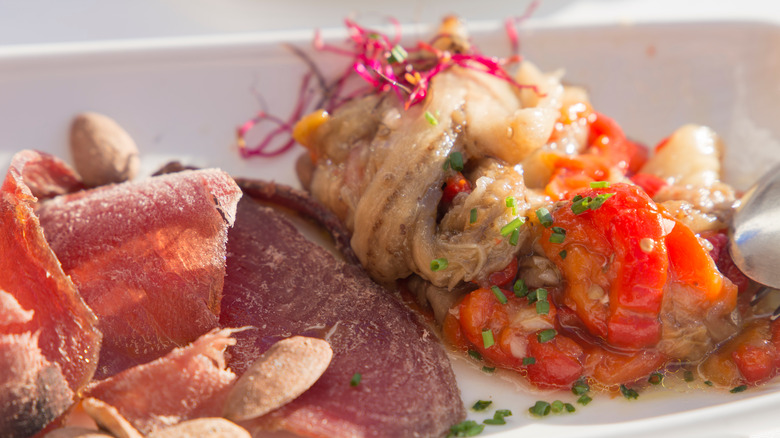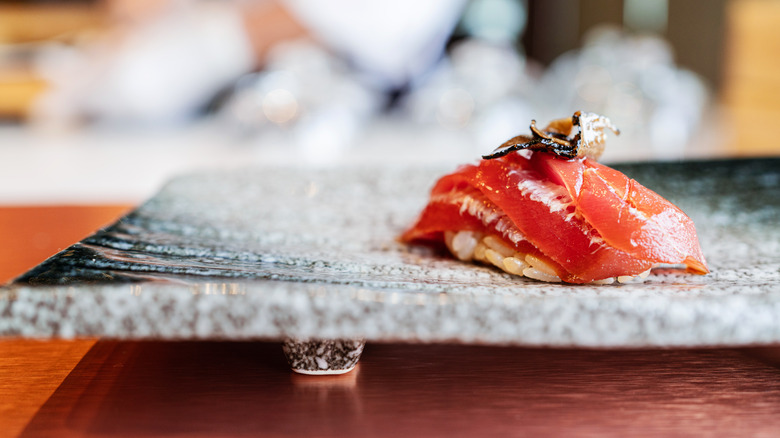The Benefits Of Dry-Aging Fish
For die-hard sushi fans, it might be hard to imagine the possibility of improving upon a well-crafted California roll. But lately, artisan fish vendors like those at Los Angeles' inimitable seafood shop The Joint are sparking a global dialogue challenging the way we think about the best way to treat freshly-caught fish (via Food & Wine). Run by prior fisherman and lifelong fish enthusiast Liwei Liao, The Joint is known for initiating a prominent hashtag with fish and seafood vendors, pushing accepted industry paradigms with the catchphrase #freshisboring (via The Joint Eatery's YouTube profile).
While some might balk at the idea of eating aged fish, properly treated and dry-aged fish can actually taste "meatier" with more depth — not to mention it is usually more tender than fresh fish in the throws of rigor mortis, via "Wild and Whole Sourced." When tasted side by side with raw, fresh fish, dry-aged fish is packed full of flavor with a notable absence of "fishy" flavors.
Inspired by a combination of the idea of dry-aged beef cuts and steaks and the traditional Japanese fish-aging practice that has gone on for hundreds of years (via Food Beast), more and more chefs, seafood vendors, home cooks, and general fish enthusiasts are beginning to understand the merits of dry-aged fish.
How dry-aging fish offers culinary and practical perks
Boston-based PABU chef Ben Steigers also makes a practice of dry-aging his fish before turning it into sushi and sashimi. According to Steigers, aging the fish allows the amino acids in the meat to break down, rendering proteins, glycogen, and fats into more palatable sweet and umami flavors (via The Manual). As he explained, particularly meaty fish like yellowtail or snapper especially benefit from this treatment, allowing the muscle fibers to relax during the aging process and creating a much more tender, melt-in-the-mouth dining experience.
Aside from creating a tastier, umami-rich final cut of meat, dry-aged (i.e. preserved) fish can help vendors run a zero-waste shop. Unlike fresh fish, which grows foul and fishy with time, dry-aged fish often only improves the longer it ages. This helps vendors like Liao to sell their wares before they expire (from Food & Wine). Plus, starting with a higher-quality, exceptional cut of dry-aged fish means there's less prep work involved for the home cook, creating opportunities to simplify and elevate your weeknight fish dinner routine.

